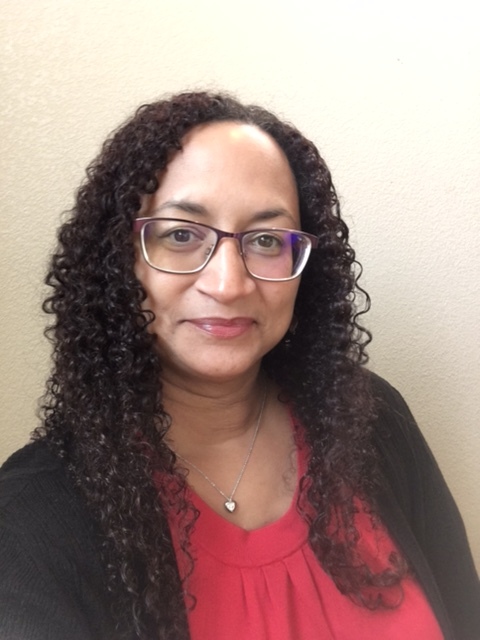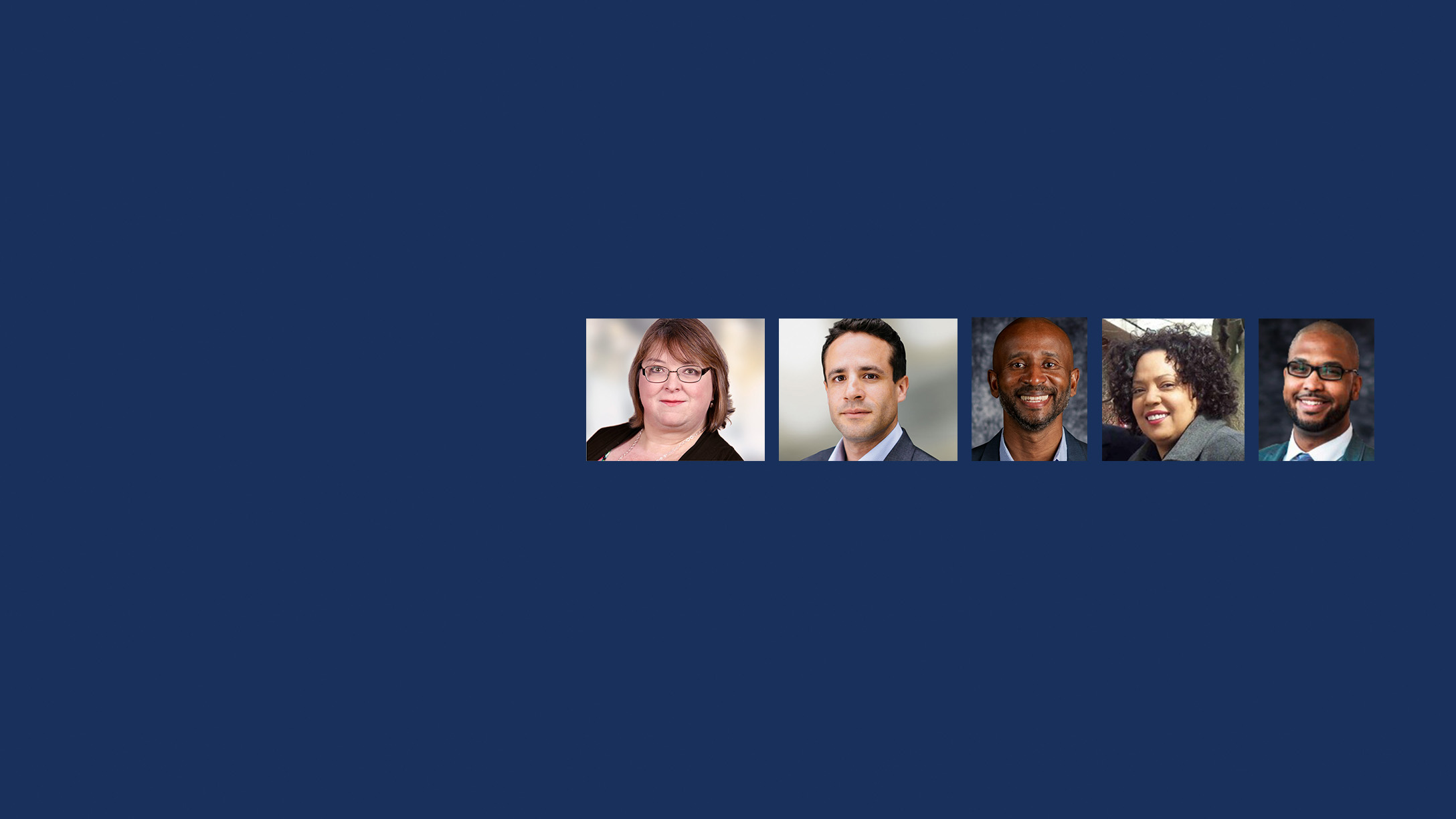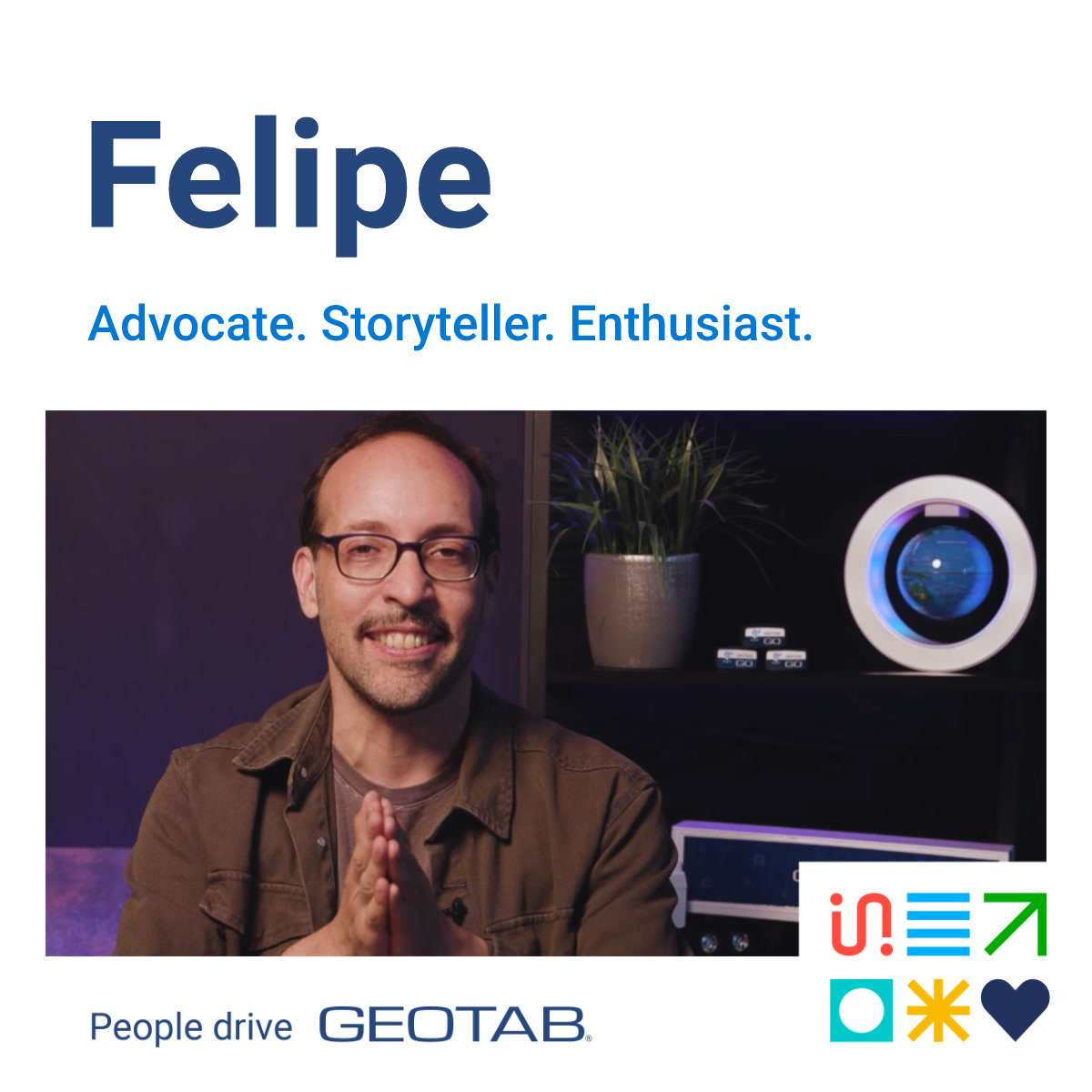A Colorful Experience: Celebrating Black History Month at Geotab
See how Geotab celebrated Black History Month.

Jun 23, 2025

The origins of Black History Month can be traced back to when black historian, Carter G. Woodson, and his Association for the Study of African American Life and History (ASALH) sponsored a national Negro History Week in the second week of February 1926. The week was chosen to coincide with the birthdays of Abraham Lincoln (the United States president who issued the Emancipation Proclamation in 1864 that freed the slaves) and black abolitionist Frederick Douglass. The event was created to inspire schools and communities nationwide to organize local celebrations, establish history clubs and host performances and lectures revolving around black culture and achievements.
By the late 1960s, Negro History Week had grown into Black History Month thanks in part to the civil rights movement and a growing understanding of Black identity. In 1976, President Gerald Ford officially recognized Black History Month and posed it as an opportunity for the public to “seize the opportunity to honor the too-often neglected accomplishments of Black Americans in every area of endeavor throughout our history.”
Since then, every Black History Month has revolved around a specific theme, designed to ignite conversations and celebrate diversity, belonging and inclusion. In 2022, the theme of Black History Month is Black Health and Wellness. This theme looks at the actions, rituals and projects that Black communities have undertaken to achieve success. It also acknowledges the legacies of black individuals in all aspects of mental health care, medicine and other related fields.
What is Geotab doing to celebrate Black History Month?
To celebrate Black History Month in 2022, Geotab hosted an internal event called “A Colorful Experience: Understanding the History behind Black History Month” on February 10, 2022. During this event, Geotabbers were welcomed to join sessions led by black individuals that covered topics such as black history through a Canadian lens and the inclusion of black individuals in the world of science, technology, engineering and math (STEM).
To learn more about the topics covered in these sessions, read our recaps below:
Rochelle Bush and the history of Underground Railroad

The first session was hosted by Rochelle Bush, who is the proprietor and main guide for Tubman Tours Canada. Rochelle is a descendent of freedom seekers and was born and raised in St. Catharines, Ontario. Her connection to the community goes back generations as her great-great-grandfather served as the minister-in-charge at the Salem Chapel British Methodist Episcopal (BME) Church when famed abolitionist Harriet Tubman was a member.
Using her background as a direct descendant of the freedom seekers who fled to Canada using the Underground Railroad, Rochelle shared the history of the travel routes and network of safe houses established in the U.S. during the early to mid-19th century. She provided insight into how freedom seekers became an integral part of the Niagara region’s history. She also highlighted key influential black figures, freedom seekers and even inventors who have had a direct impact on Geotab’s operations.
Some of the key figures highlighted included:
- Chloe Cooley: A young black woman brought to Upper Canada as a slave by loyalists from the United States. In 1793, her owner forced her into a boat to sell her across the Niagara River that borders Canada and the U.S. Several witnesses saw the incident and petitioned the Executive Council of Upper Canada. Despite the fact that charges against Cooley's owner were dismissed, the episode is thought to have prompted Upper Canada to establish the Act Against Slavery in 1793, which prohibited the importation of slaves from the U.S. and allowed for the eventual elimination of slavery among those kept there.
- Josiah Henson: An American laborer who escaped slavery in 1830 and sought sanctuary in Canada, where he founded the Dawn Settlement, a model community for former slaves.
- Garret Morgan: A black man responsible for the invention of the gas mask in 1914 and the traffic light in 1923.
- Frederick McKinley Jones: A man born to a white father and black mother that invented refrigeration equipment used to transport food and blood in World War II.
- Elijah McCoy: An African-Canadian mechanical engineer and inventor best known for his groundbreaking innovations in industrial lubrication for trains and automobiles.
- Solomon Moseby: A famous freedom seeker who stole his owner’s horse to escape slavery in Kentucky and fled to Niagara-on-the-Lake, Ontario to earn his freedom. His enslaver followed him to Canada and demanded his extradition based on his crime. However, fear of his extradition being used to infringe on the rights of other black freedom seekers led to a protest of more than 200 black supporters where two protesters were killed. Solomon Moseby's case highlighted the question of whether Canada should extradite an accused person to a country where the punishment is worse than Canadian standards allow. This question, and Solomon Moseby’s case, continues to impact Canada's extradition and refugee policy to this day.
- William Still: Author of the 1872 book, The Underground Railroad, which documented the stories of formerly enslaved Africans who gained their freedom. Still was also a conductor on the Underground Railroad, businessman, writer, historian and civil rights activist.
- Harriet Tubman: Arguably one of the most famous abolitionists of her time, Tubman who was born into slavery, escaped and went on to liberate approximately 70 enslaved individuals, including relatives and friends, through the Underground Railroad.
To learn more about Rochelle and her tour company, visit the Tubman Tours Canada website.
Black Professionals in Tech Network panel discussion

The second session was moderated by Rebecca Wellum, Geotab’s Vice President, Compliance and our Diversity, Inclusion and Belonging champion. She was joined by Spencer Brawner from Initrode and Diavin Miller from the Black Professionals in Tech Network (BPTN).
Spencer is the Founder of Initrode and an active member of BPTN. His career has led him to roles in education, professional sports startups and aviation, where he's focused on innovation. He has worked to leverage technology to enable businesses. One of his top achievements was serving as the Director of IT for the Edmonton Elks at the 2010 Grey Cup game — the end-of-season championship game for the Canadian Football League (CFL).
Diavin is the Head of Customer Experience, BPTN where a major part of his focus has been on leading teams to embed inclusive practices within client organizations and help them deliver on their diversity and inclusion commitments. Diavin has facilitated a number of robust and healthy conversations where he helps people develop the diversity lens required to deliver on intentional and meaningful diversity programs.
During this panel discussion, Rebecca prompted Spencer and Diavin with several questions pertaining to the history of black individuals in tech, mentors who have helped shape their careers and what it takes to be a leader and foster positive and inclusive change in your organization. Read on for highlights from the discussion.
How has black history shaped the place for Black people in the tech industry?
Spencer: “If you think about our ancient African history, who developed the bow and arrow, fishing hooks, boats, some of the earliest examples of math? These are our ancient contributions, but we continue to go on. We developed advanced forms of government in West Africa. And then if we think about modern history, one of my favorite people is Charles Drew who developed new methods of blood plasma storage and organized the first large-scale blood bank. in the U. S., Dr. Mark Dean helped develop the first gigahertz chip ever written. We just have a place we cannot be denied. And even if you think about the success of platforms like TikTok, who helped us to go viral? It was our dancing. So I think that we have always had a place; we have always naturally been innovators. We've naturally been inclined to STEM. And it's really something for us to celebrate those of us who have found success in this industry to make pathways for others.”
Can you discuss mentors or sponsors that were instrumental in helping you progress in your career? How did you find them, and how did the relationship foster positive change for you?
Diavin: “My first mentor, I didn't even know she was a mentor. I started out in the IT department of a telecom company about 22 years ago, and she was the senior manager. There was me and another black-identified woman who was working on the team and she was pretty hard on us. And we kept thinking, you know, she hates us. What did we do? Why is she being so hard on us? And only later did we get to appreciate what she was doing. She was really pushing us because she understood that being black and in tech was something that we were going to have to be prepared to survive. But not everyone is going to have the same experience and you're going to need extra skills, you're going to need a little bit of extra toughness in order to be able to do this, and you're going to need to be that much better. So she really, really pushed us. And eventually, we came to really appreciate that. And it's one of the things that's really served me, I think, in my career, in terms of understanding and always being willing to do the work. And an understanding that, hey, I'm going to be judged differently. And so I need to come prepared for that.”
What has your experience been learning how to be effective at networking? Do you feel like you've managed to do that?
Diavin: “I'm going to speak from a professional perspective and then I'm going to speak from a personal perspective. In my professional life, a part of what I do at BPTN is to oversee the networking program, both the executive networking program, as well as the mentoring program that we offer to our members. They're really great programs and offer great ways to connect with black professionals, expand your network and just kind of build that pool of folks that you can call on. Your chances of getting a job are so much greater if you build relationships, and, and nurture them. On the personal side, I'm mostly an introvert. I’m like ‘People? Hide!’ That's my natural instinct. And so part of what I'm having to do all the time, is to fight against that, and to make sure that I'm actively putting myself out there, and I'm taking risks. It's not a natural skill for me. But it's something that I've had to learn and it's something that I've come to really, really value. A big part of overcoming the lack of representation is making sure that we can expose as many black people as many folks of color as possible into those networks so they can build those relationships so they can become trusted. It's really, really powerful. And do not neglect networking, even if you hate it, like I do. You know, one day, you could end up running programs for networking like me.”
What would you say is the number 1 way to support black youth in tech? Is it mentorship, equipment, STEM camps, working directly with teachers?
Spencer: “I definitely think there's value in all of these things, especially things like STEM camps and education and the equivalent. But to me, there's just no substitute for somebody who has seen things and has quite a bit of life experience, actually sitting down, talking to you and explaining the game. You kind of need a mentor to say, ‘Listen, this is the way it really works.’ You need somebody to call your bluff. Sometimes our mentors will just kind of put us under the fire. That's for our good. They're trying to produce a diamond by putting us under pressure. So I think that, to me, at least, the most valuable method of supporting our young folks is really trying to be good mentors to them, as well as sponsors. And for me when I'm in a hiring position, if I have a chance to hire a good quality candidate that is from some underrepresented group, I'm going to take that. If they are a good solid candidate, I'm going to try and give them the opportunity.”
How can a white leader be a better mentor/sponsor or coach for their Black staff members?
Diavin: “One of the biggest things that we see from a lot of leaders, especially if they're white-identified, is that they're afraid to talk to their black employees about race. Because there's this notion that if you're talking about race, you're contributing to racism. So people don't talk about those things. Only by being brave, only by being vulnerable, only by saying, ‘I don't know, and I need you to help me understand your experience,’ are you going to make any progress there. So it requires you to step up. And people appreciate that. And they're going to respond to that. And if they think you're sincere, and if they trust you, they're there, they're going to collaborate with you. Research shows trust comes from vulnerability. So be vulnerable, admit what you don't know and support your employees.”
How in a workspace do white allies pursue equity amongst our black colleagues without taking over the story?
Spencer: “We didn't create this problem, but at the same time, we have a vested interest in it being solved. I get the sensitivity around not wanting to be perceived, as going in to look like a hero. Because we've definitely seen some of those times where people have essentially tried to take credit for something that they didn't really do or take credit for doing nothing really. But I think the most important things are to start by having open and honest discussions with your black employees. It really has to come back to being a grassroots thing amongst your employees, about listening to what they hope to see in your workplace, about being really completely honest about what some of the challenges are of getting there. And setting expectations. If you are in a position of power, create a safe environment, listen and ask what people want. Ask who they want to lead something, and set clear metrics, set performance indicators, just like we do with anything else. You can't improve upon that which you do not measure. If you really want to affect change, you have to be measuring something. And, you know, I think at this stage, that's, that's probably the most that I could hope for from a white leader.”
A Geotabber’s perspective: Closing remarks with Mike Branch

To wrap up the event, Geotab brought in our very own Mike Branch, Vice President, Data and Analytics to provide closing remarks. In his remarks, Mike spoke of his engineering background and following in the footsteps of his father.
Mike started by saying that “although you probably can't tell from looking at me, I come from a mixed-race family.” He went on to explain that his dad is black, born in Grenada. His mother is white, and born in Toronto of Scottish ancestry.
He told the story of how his dad came to Canada and became an engineer. It all started with an ad in the local newspaper for the Radio College of Canada.
“How an ad for the Radio College of Canada found its way into the local Grenadian newspaper, I have no idea. But I thank God that it did. Otherwise, I wouldn't be here today,” Mike joked.
Continuing his dad’s story, he explained that he came to Canada in the 70s and completed his schooling at the Radio College of Canada. After graduating, he took on jobs over the next few years, but quickly realized he could do more. So he enrolled in the electrical engineering program at the University of Toronto.
“When he was there, he was literally one of two black engineers in the entire engineering school. Which blows my mind. It really does, “Mike adds.
After graduating from the University of Toronto, he took a job in Labrador City, a northern city in Newfoundland, Canada that was about as far from the climate of his father’s native Grenada as he could get.
“When he was in Labrador, I think he was literally the only black person in the city at that time,” said Mike.
“The story of my father making his way in a time when it wasn't especially easy to do so, through so much adversity, for me, it's honestly been such an inspiration as I've grown up for so many different reasons,” said Mike. “First of all, showing me that anything is possible. He's really been the driving force behind my determination and my entrepreneurial spirit. What I've been able to accomplish, I owe so much to him and that passion.”
Mike closed out his speech by sharing that 20 years after his father graduated, he himself went on to study engineering at the University of Toronto.
“I was in the class of 2003 and at that point in time, there was so much more diversity. Not to say that it was anywhere near parity, but it was so much more multicultural, and there were a number of black engineers,” he adds. “My roommate in first year was actually a black engineer from Trinidad.”
Mike said that when he thinks back to there only being two black engineers in his dad's class, it was a testament to how much had changed. He admits that there's definitely a lot more room to grow, but it was incredible to see nonetheless.
Geotab’s commitment to diversity
Geotab’s celebration of black history was designed to allow time for reflection on the history of the struggles of black North Americans and the continued struggles they face even in this current day. It also helped showcase how technology is spearheaded by black talent across the globe.
At Geotab, we believe diversity is fundamental to our future growth and is an integral part of our business. We believe that success happens where new ideas can flourish — in an environment that is rich in diversity and a place where people from various backgrounds can collaborate.
We know that an environment that fosters diversity is the kind of environment that brings out the untapped potential that lies in our workforce, stimulates innovation and company growth. As an organization, we are committed to sustaining a globally diverse, equitable and inclusive culture where differences drive innovative solutions.
If you’re looking to join a company that fosters safe spaces and champions diversity, then Geotab is the place for you. Check out our open positions on our Careers site and apply today!
For the latest Geotab news, photos and career updates, follow @InsideGeotab on Twitter, Facebook and Instagram.
Subscribe to get industry tips and insights

Nicole Calix Coy is a Compliance & Diversity Program Manager for Geotab.
Table of Contents
Subscribe to get industry tips and insights
Related posts
.jpg)
From the Flight Line to the Bottom Line: How James brings military precision to Geotab
November 27, 2025
1 minute read
.jpg)
The Long Road Home: How a Veteran’s Resilience Redefined His Mission at Geotab
November 25, 2025
2 minute read
.jpg)
Teamwork, Tenacity, and the Flying Disc: Jodie Rochemont on Ultimate Strategy and Resilience
October 30, 2025
2 minute read

The Power of Storytelling: Felipe Hoffa's Impact on Geotab's Data and AI
October 20, 2025
1 minute read
%20(1).jpg)
Designing with Purpose: How Daiane Innovates for Work and Home
September 29, 2025
3 minute read
